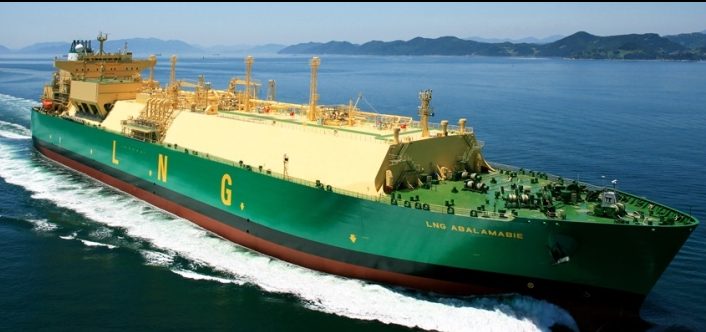
Istanbul — Turkey’s record demand for natural gas this year is forcing it to step up purchases on a surging spot market as it scrambles to renew long-term contracts expiring this winter.
One of the largest gas importers in Europe, Turkey depends on pipeline gas from Russia, Azerbaijan and Iran as well as liquefied natural gas (LNG) imports from Nigeria, Algeria and spot markets.
It had four long-term import contracts expiring this year totalling 16 billion cubic metres (bcm) annually.
Turkey has renewed one of them, with Azerbaijan, agreeing a three-year contract to import up to 6 bcm per year, following the expiry of a 15-year contract for 6.6 bcm, two industry sources told Reuters.
The new, shorter contract will be for spot imports of gas with prices indexed to Italy’s PSV hub, as opposed to long-term take-or-pay contracts with oil indexed pricing that Ankara wants phased out.
Turkey’s energy ministry did not respond to Reuters questions on the Azerbaijan contract.
That still leaves Ankara with three contracts to roll over – two for state and private sector imports via pipeline from Russia’s Gazprom of 4 bcm each, which expire at the end of the year, and 1.3 bcm of Nigerian LNG expiring this month.
With time running short, a meeting between the Russian and Turkish presidents ended without a gas deal two weeks ago.
President Vladimir Putin tried to reassure Ankara, saying it was shielded from Europe’s gas crisis by Russian pipeline supply to Turkey. But Turkey has little gas in reserve to fall back on if the talks drag on.
“All contractually available pipeline gas from Russia, Iran and Azerbaijan has been pulled out and used as of mid-September,” a Turkish industry source said.
$5 BILLION SUBSIDY HIT
In the past Turkey used LNG to complement more expensive pipeline imports. Hiking the share of LNG in gas imports almost to a third in the last two years, it signalled to its import partners that expensive oil-indexed contracts for pipeline gas needed to become more competitive.
Plans to cover up to a quarter of its consumption from a new Black Sea discovery from 2027 were also expected to strengthen its hand in negotiations.
However a drought this year curtailed hydro-electric power, putting idled gas power plants back online and driving Turkey’s consumption up to an expected record of 60 bcm of gas, just as prices spike in Europe.
With daily peak consumption expected to hit 300 million cubic metres this winter, Turkey will have to renew all expiring contracts with at least the same volumes, and top up its supply with expensive LNG, said industry consultant Arif Aktürk.
Turkey has around 48 bcm/year of import contracts in place, meaning it will have to import a little shy of 13 bcm LNG from spot markets now seeing sky high prices. Spot LNG imports so far this year stand at 2 bcm, official data show.
“Turkey could use spot imports of LNG or Azeri pipeline gas to fulfil the shortfall… The only downside would be extra costs incurred from buying on the spot market, but Turkey would most likely not face an availability problem,” said Sohbet Karbuz, director for hydrocarbons at think tank OME in Paris.
Gas use for heating and small scale manufacturing is subsidised in Turkey where households pay $170 for 1,000 cubic metres of gas. The same volume of gas peaked above $1,000 last week at the Dutch TTF gas hub where prices have quadrupled this year.
That means it would cost Turkey an estimated $5 billion to subsidise spot LNG imports at current market prices in the last quarter, the industry source said.
Whatever the cost, Energy Minister Fatih Donmez stressed Turkey would ensure security of supply.
“So far we’ve resorted to sourcing LNG from spot markets to meet additional consumption as security of supply is more important than the price,” Donmez said on Friday.
- Reuters (Reporting by Can Sezer in Istanbul and Orhan Coskun in Ankara; editing by Dominic Evans and Jason Neely)
- Follow us on twitter



